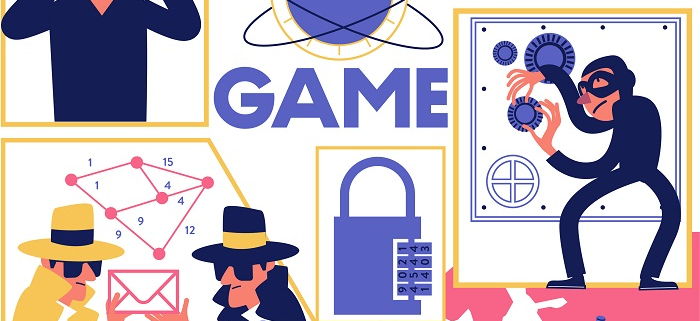An escape game for formative assessment in graph theory at IMT Atlantique
A recently developed initiative, offered for the first time in January 2022, has made a lasting impression on students at IMT Atlantique in Nantes: an escape game for formative assessment in graph theory.
Gilles Simonin, research professor and head of the COPSI program (Design, Optimization and Management of Industrial Systems), developed the project. “I wanted to put students in a challenging situation to assess their understanding of the prerequisites for discrete mathematics and operational research” he explained.
The research professor is an avid escape game and board game player, and invented a scenario to give students the opportunity to work through algorithms by hand: “Graph theory lends itself perfectly to the escape game format, since it is highly visual and easy to set up, without machines. ”
Students work in groups of 4 or 5 and are immersed in a 60s cold war setting, where, for an hour, they become spies who must recover documents in the laboratory of a mathematics researcher. “Searching is a big part of the game. Students solve puzzles to unlock paths and find clues,” adds Gilles Simonin. The escape game ends with a debriefing and a report, which is essential for knowledge acquisition.
Student feedback has been very positive, with most students reporting that they enjoy playing the game.
“The link between enjoying the game and knowledge helps students better understand notions and concepts they hadn’t fully grasped. The fun, unconventional setting creates a memorable experience, enabling them to effectively draw on their knowledge in other contexts, such as during an exam,” says Gilles Simonin.
In the future, he plans to expand the escape game to offer it to a hundred students every year. Gilles Simonin would also like to support and guide other professors in setting up escape games suited to their fields, to move from theory to game. “In my view, the most important aspect is creating an engaging atmosphere, so students forget they’re in a school setting,” he says. “The more realistic it is, the greater its impact, and the more they’ll remember what they’ve learned over the long-term.”
Escape Game
An escape room or escape game is a role-play game where players must escape from a room or series of rooms within a time limit. To do so, players must work together to find and collect a number of clues and objects in order to solve puzzles.
Sources : Gaëlle Guigon, Jérémie Humeau, Mathieu Vermeulen. Escape Classroom: un escape game pour l’enseignement. 9th Conference on Pedagogical Issues in Higher Education Learning (QPES 2017), Jun 2017, Grenoble, France. ⟨hal-01503763⟩
Formative assessment
Formative assessment refers to frequent, interactive assessments of students’ progress and learning in order to identify needs and adjust teaching methods accordingly. Teachers who use formative assessment methods and techniques are better equipped to meet the diverse needs of students – by varying and adjusting their teaching methods, to improve students’ level of achievement and equity of outcomes.
Sources :
- Perrenoud, P. (1998), “From Formative Evaluation to a Controlled Regulation of Learning Processes.
- Towards a Wider Conceptual Field”, Assessment in Education: Principles, Policy and Practice,
- CARFAX, Oxfordshire, Vol. 5, No. 1, pp. 85-102.



















